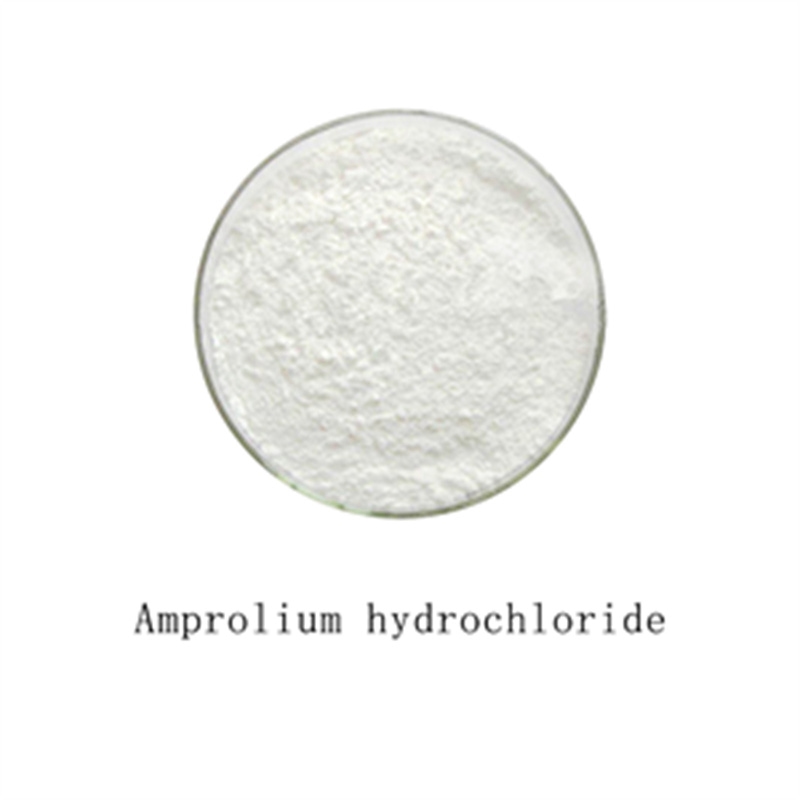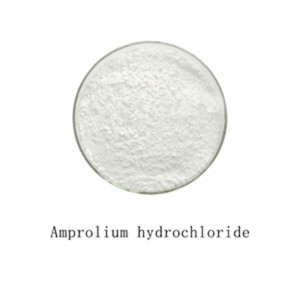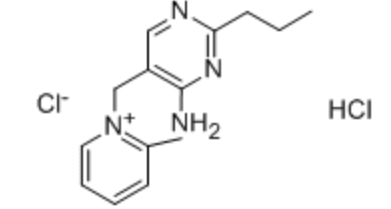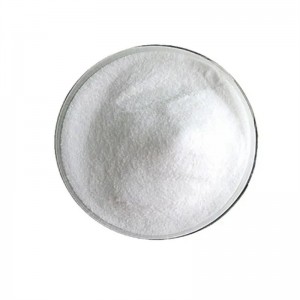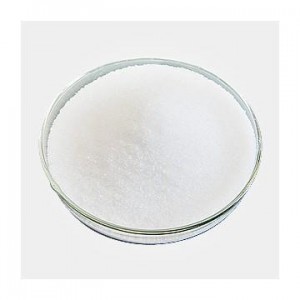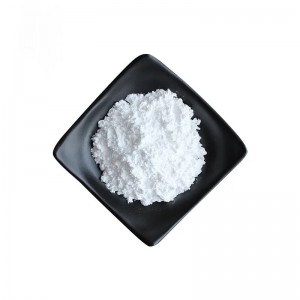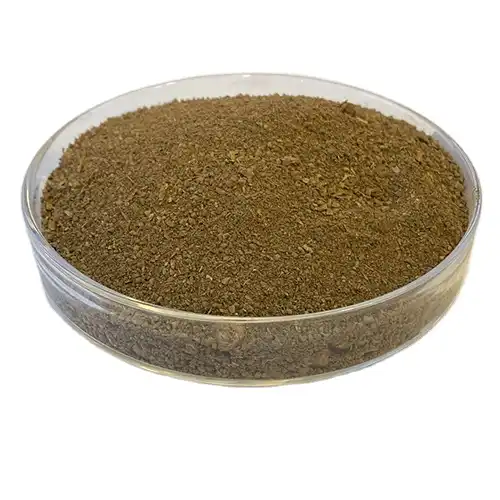| Basic Information | |
| Product name | Amprolium Hydrochloride |
| Grade | Feed grade |
| Appearance | White Crystalline powder |
| Assay | 99% |
| Shelf life | 2 Years |
| Packing | 25kg/drum |
| Condition | Keep in a cool, dry, dark location in a tightly sealed container or cylinder. |
Introduction of Amprolium Hydrochloride
Amprolium is a thiamine analog and antiprotozoal agent that interferes with thiamine metabolism and inhibits carbohydrate synthesis. It competitively inhibits thiamine uptake by E. tenella schizonts and by chick host intestinal cells (Kis = 7.6 and 326 μM, respectively). It also inhibits hexose formation and pentose utilization ex vivo in isolated lysed rat erythrocytes and in liver, kidney, heart, and intestinal tissue homogenates following dietary administration. Amprolium (1,000 ppm in feed) inhibits oocyst output and sporulation of Eimeria maxima, E. brunetti, and E. acervulina in infected chicks. It also decreases lesion and oocyst scores and mortality of E. tenella-infected chicks following dietary administration of a 125 ppm dose. Amprolium (100 μM) induces apoptosis in PC12 rat adrenal cells and increases the level of cleaved caspase-3. Formulations containing amprolium have been used as coccidiostats in poultry processing.
Application of Amprolium Hydrochloride
Amprolium Hydrochloride has good activity against Eimeria tenella and E. acervulina in poultry and can be used as a therapeutic agent for these organisms. It only has marginal activity or weak activity against E. maxima, E. mivati, E. necatrix, or E. brunetti. It is often used in combination with other agents (e.g., ethopabate) to improve control against those organisms.
In cattle, amprolium has approval for the treatment and prevention of E. bovis and E. zurnii in cattle and calves.
Amprolium has been used in dogs, swine, sheep, and goats for the control of coccidiosis, although there are no approved products in the USA for these species.

